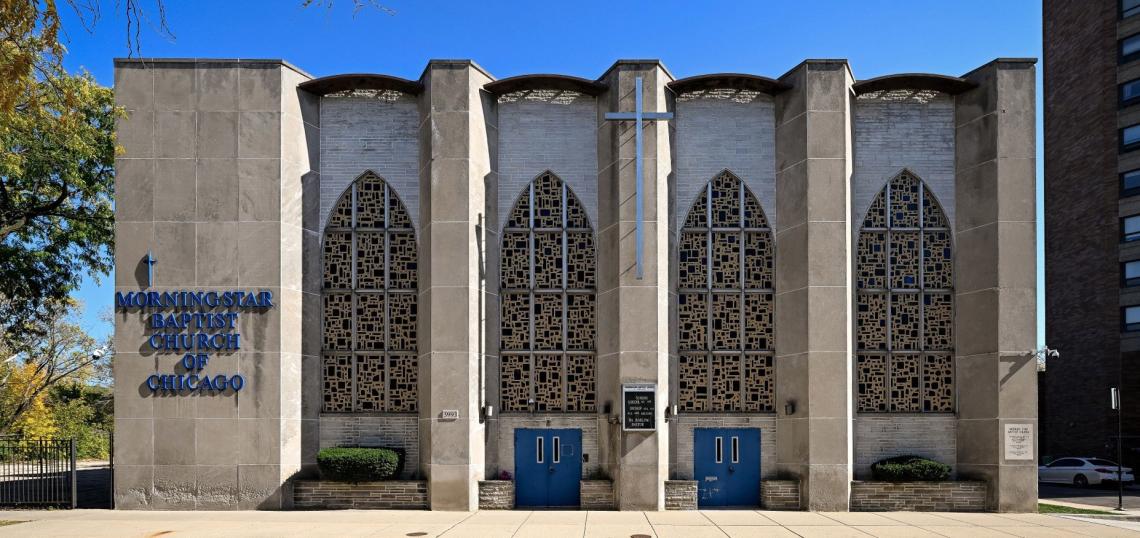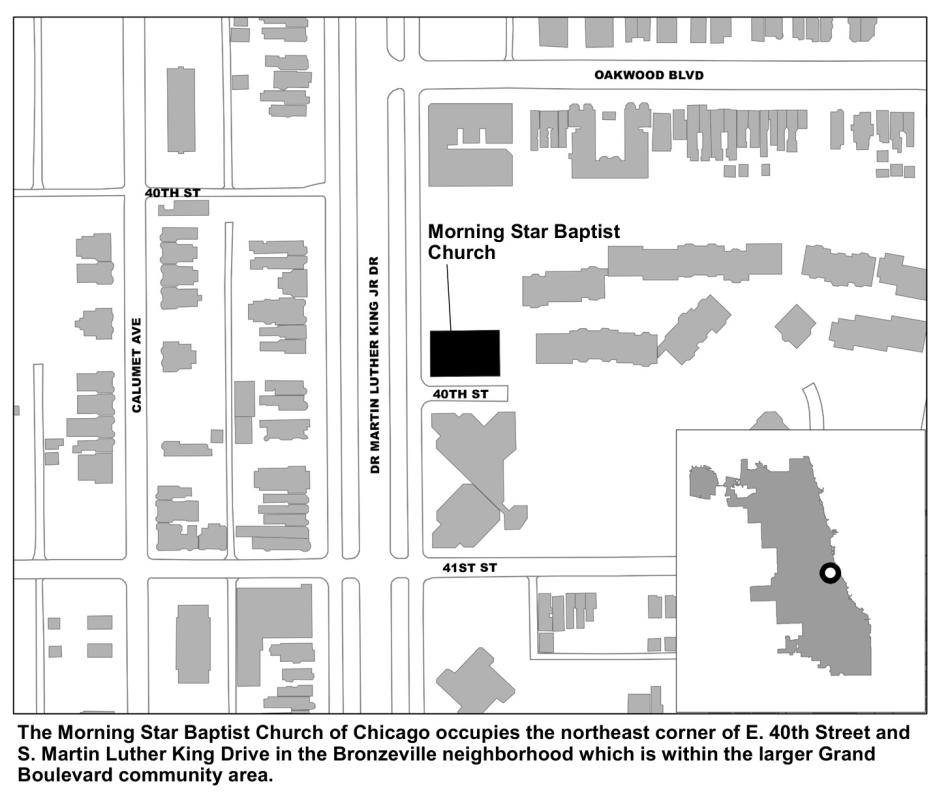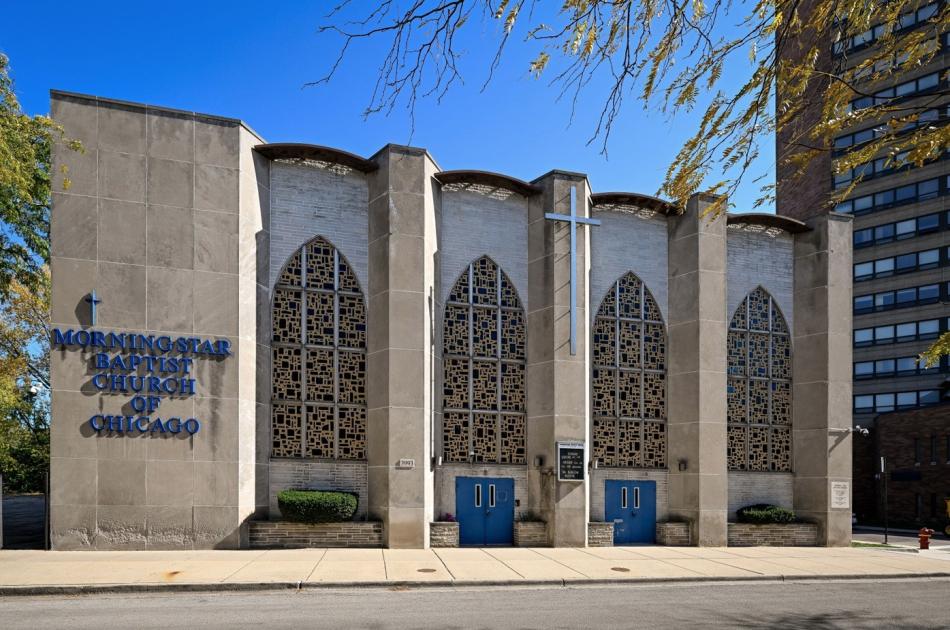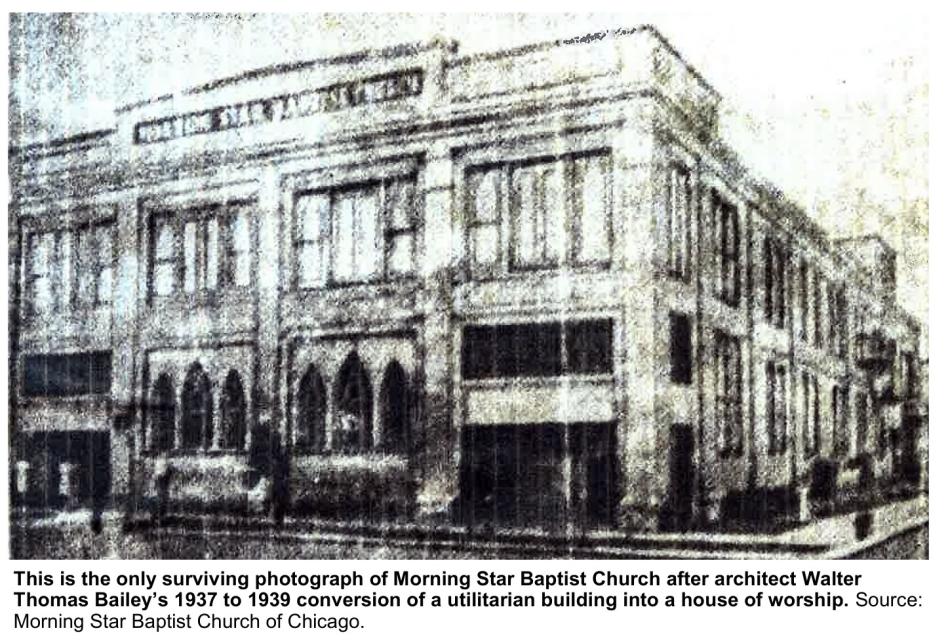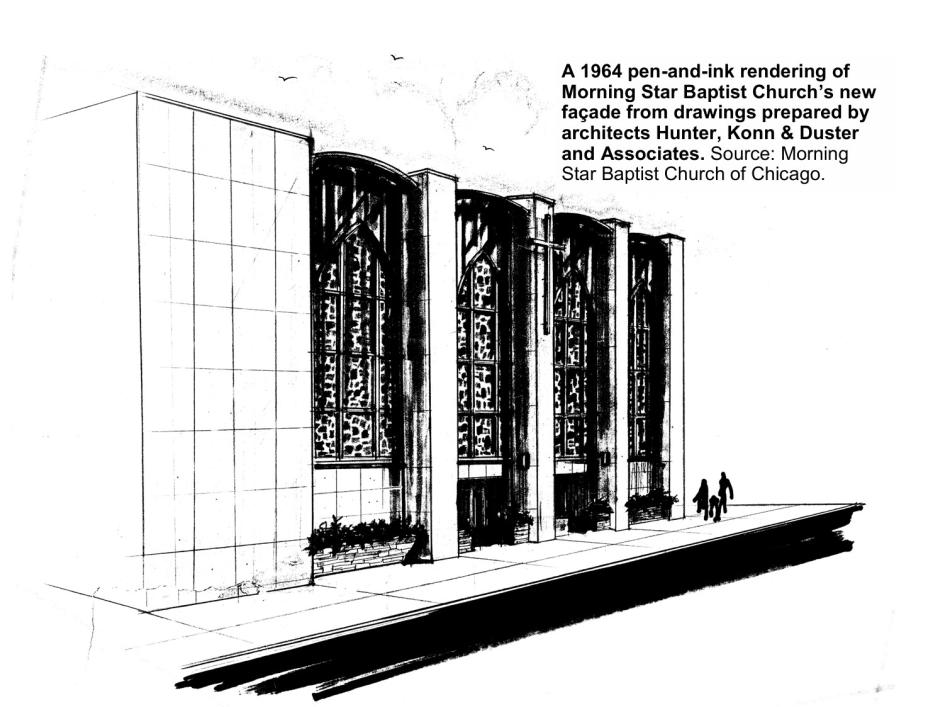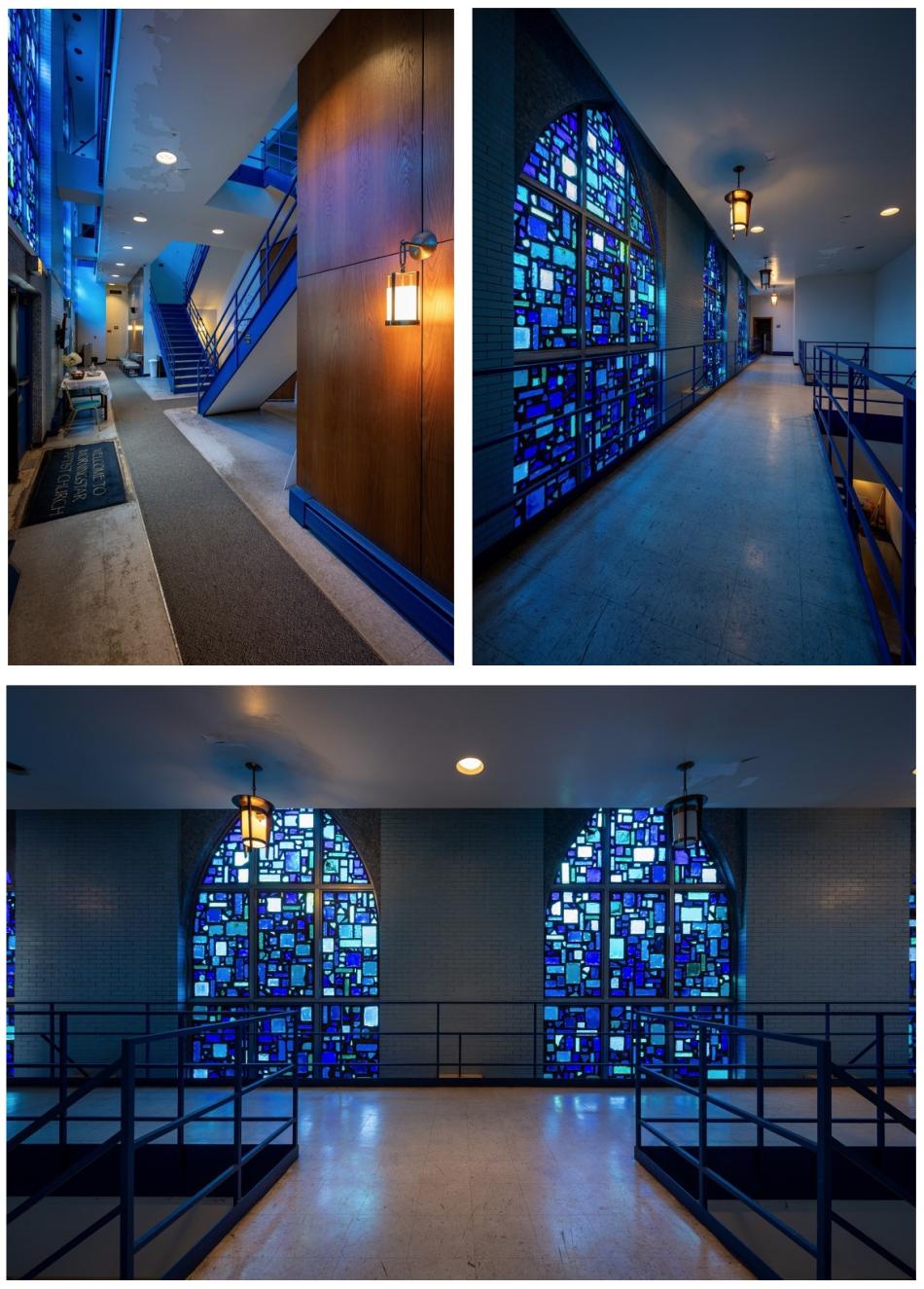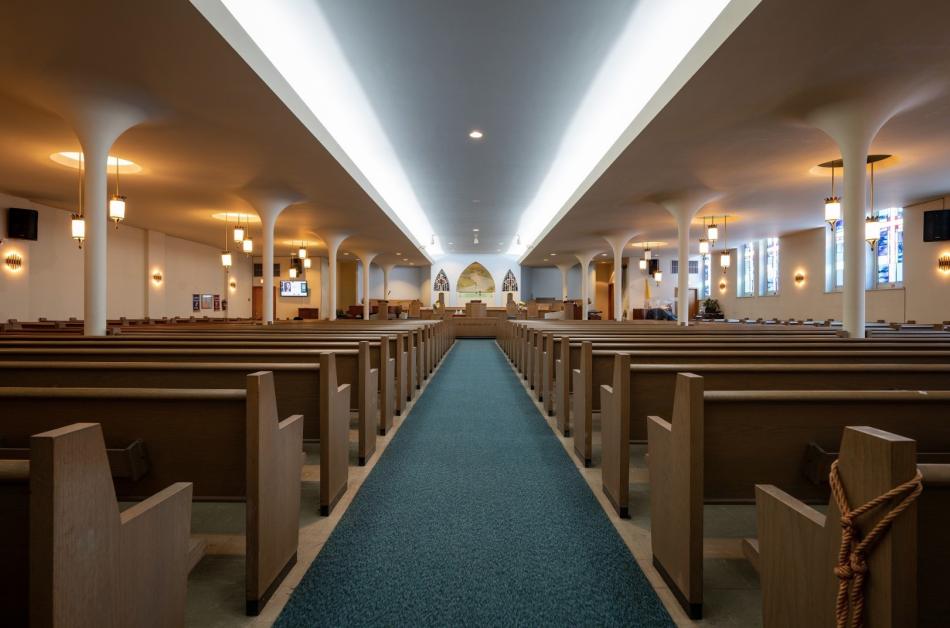The Commission on Chicago Landmarks has approved a preliminary landmark recommendation for the Morning Star Baptist Church of Chicago. Located at 3993 S. Dr. Martin Luther King Drive, the church building was originally in 1912 with the congregation originally founded in 1917 as a direct result of the Great Migration.
Meeting Criterion 1 for Heritage, Morning Star Baptist Church embodies the social history of Bronzeville's development as a "Black Metropolis," serving as a spiritual and community anchor for African Americans who settled in Chicago during a period of significant demographic change. The church’s founding is a representation of the cultural heritage of African Americans who arrived in Chicago as part of the Great Migration, and the influence that the movement had on the city, particularly Bronzeville and the South Side.
Morning Star Baptist Church exemplifies the critical role that religious institutions played in the history and development of Chicago's neighborhoods in the early to mid-20th century, particularly in supporting and sustaining African American communities. Despite the economic hardships of the Great Depression, in 1936 the congregation purchased the building and commissioned pioneering Black architect Walter Thomas Bailey to transform the utilitarian structure into a place of worship reflecting the collective economic strength of the congregation.
Also meeting Criterion 3 for Significant People, the Morning Star Baptist Church of Chicago has been led by significant pastors, including Rev. Edmund D. Hubbard who founded the church with a mere 25 members in 1917, Rev. Ira Monroe Hendon who served as pastor at Morning Star from 1932 to 1958 during the congregations purchase and renovation of the church in 1937, and Rev. Dr. Luke W. Mingo who led the congregation through the modernization of the building to its current 24 architectural quality in the 1960s.
Morning Star Baptist is also significant for its association with DeLois Barrett Campbell, Billie Mae Barrett Greenbey, and Rodessa Barrett Porter who formed the nationally significant gospel music trio known as the Barrett Sisters. They were nurtured in the choir at Morning Star Baptist Church and throughout their career returned to perform at the church.
The church also meets Criterion 4 for Exemplary Architecture, as it is a unique example of adaptive reuse in ecclesiastical architecture from the 1930s, transforming from an early 20th-century auto garage into a house of worship. The church's renovation from 1963 to 1968 transformed the building’s front facade into a modernist design featuring piers that clearly express the structure, smooth wall surfaces, an absence of historic ornament and distinctive dalle de verre stained glass windows.
Also meeting Criterion 5 for Important Architect, the church was originally built in 1912 as an auto and truck livery, however that building underwent a significant renovation from 1937 to 1939 that was designed by Walter T. Bailey, the first African American architect registered in Illinois.
In 1963 the congregation began another major renovation that transformed Morning Star Baptist Church of Chicago into its present form as a manifestation of the Modern Movement in architecture. The renovation was designed by the African American architectural firm of Hunter, Konn, & Duster and Associates.
The church also meets the Integrity Criterion. While the building has undergone significant alterations since its original construction as an auto garage, these changes - particularly the 1963 to 1968 modernist renovation - have become historically significant in their own right, representing an important phase in the church's development and in mid-20th century ecclesiastical architecture. The church retains its character-defining features and ability to express its historic significance.
The congregation has maintained the building well since completion of the 1968 renovation. Stained glass windows were added to existing window openings at the south elevation in the 1990s, and exterior signage on the façade has been altered. None of these changes diminish the building’s architecture or historic significance.
The Commission has recommended that features to be protected are all exterior elevations, the first-floor entrance vestibule with its internal stairways and elevated walkways, and the main worship space of the sanctuary. With the preliminary landmark recommendation approved, the Commission will need to approve a final landmark recommendation before sending the proposed designation to City Hall for final approvals from the Committee on Zoning and City Council.




